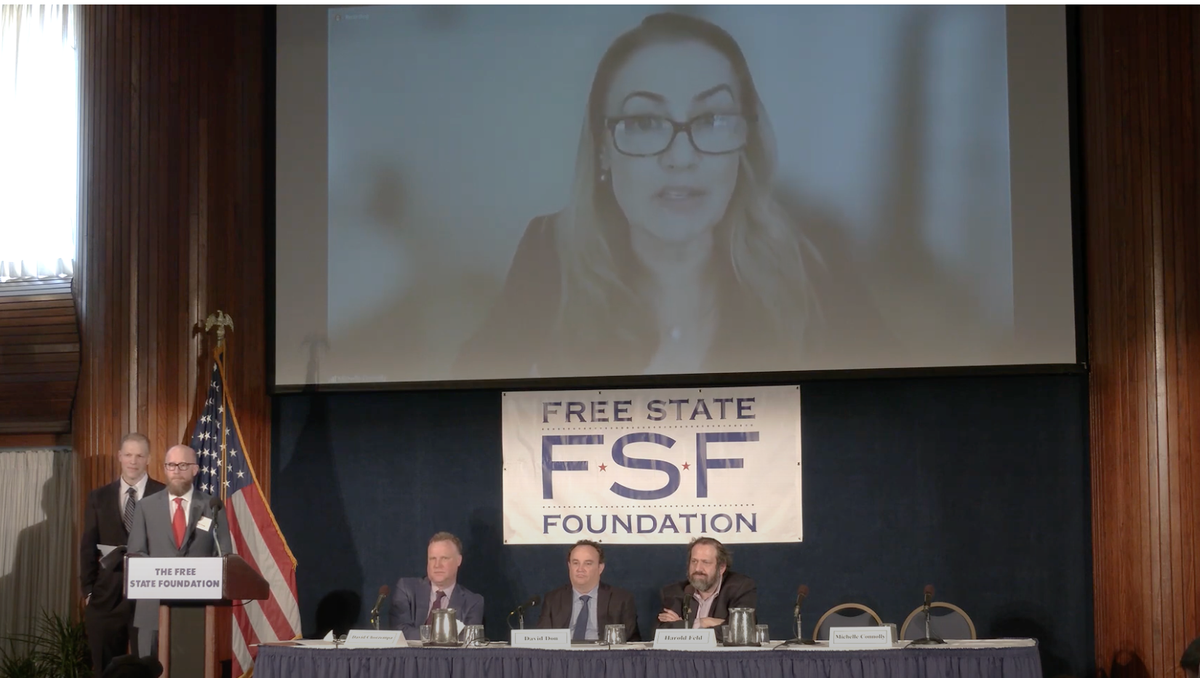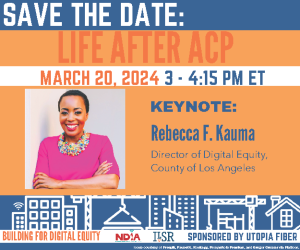At Free State Event, Most Industry and Academics Dump on FCC Regulation
The officials criticized the agency’s proposal to create more stringent regulations on broadband access.

WASHINGTON, March 18, 2024 – Industry officials and an academic at the Free State Foundation conference on Tuesday dumped on the Federal Communication Commission’s proposed net neutrality rules, while one public interest panelist defended the agency.
The industry officials - from Comcast and AT&T - criticized the agency’s proposal to create more stringent regulations on broadband access, saying that to do so would stymie broadband deployment and investment.

David Don, senior vice president of public policy for Comcast, pushed back against the claim that communications companies engage in digital discrimination, arguing that they provide sufficient service to all types of communities across the country. Comcast has deployed cable to all customers within their franchise areas, he said.
Future implementation of Docsis 4.0, the next generation cable modem standard, will deploy gigabit speeds throughout the country, he said.
David Chorzempa, vice president and associate general counsel of AT&T said he is passionate about the idea that low-income and minority communities can be profitable for telecommunications companies. He said that his company’s fiber deployment is “equitable” to all communities, regardless of income or racial background.
Chorzempa said that ISPs are not discriminating against certain communities. He also said 90 percent of Americans “have access to broadband speeds” that are 120 Megabits per second (Mbps) and above.
“If Congress really felt that the problem with getting broadband out to communities in America is because ISPs are engaging in digital discrimination, it would have never allocated $60 billion to solve the digital divide through subsidies,” Chorzempa said.
He lamented that the FCC has initiated an attempt to regulate “every aspect” of the telecommunications business, not just broadband. He predicted that additional FCC regulation would “not get broadband into one home” and “negatively impact broadband employment in the end.”

Michelle Connolly, economics professor at Duke University, took aim at the FCC’s effort to impose open internet regulations addressing net neutrality by classifying broadband internet access services as a Title II communications service.
“Suggesting that it should be regulated as if it were a utility, that is a monopoly, is at face value not very strong,” said Connally.
And she defended broadband companies that want to throttle users’ internet services: “Proposals such as no throttling, no prioritization are actually anti-competitive rules. They break down the ability of a market to use market forces and pricing to effectively prioritize services that need priority.”
The dissenting voice in the discussion was Harold Feld, senior vice president at Public Knowledge, an open internet advocacy organization.
He said the FCC has presented substantial amounts of evidence that digital discrimination against low income and disadvantaged communities still exists. He also underlined the need for Title II regulations to address net neutrality complaints..
Telecommunications companies’ past behavior indicates that “without a directive to serve everyone equally,” they will ignore lower-income communities, Feld said.
“Profit maximizing firms are profit maximizing firms.” He said “it takes a push” for telecommunications companies to serve underprivileged communities.









